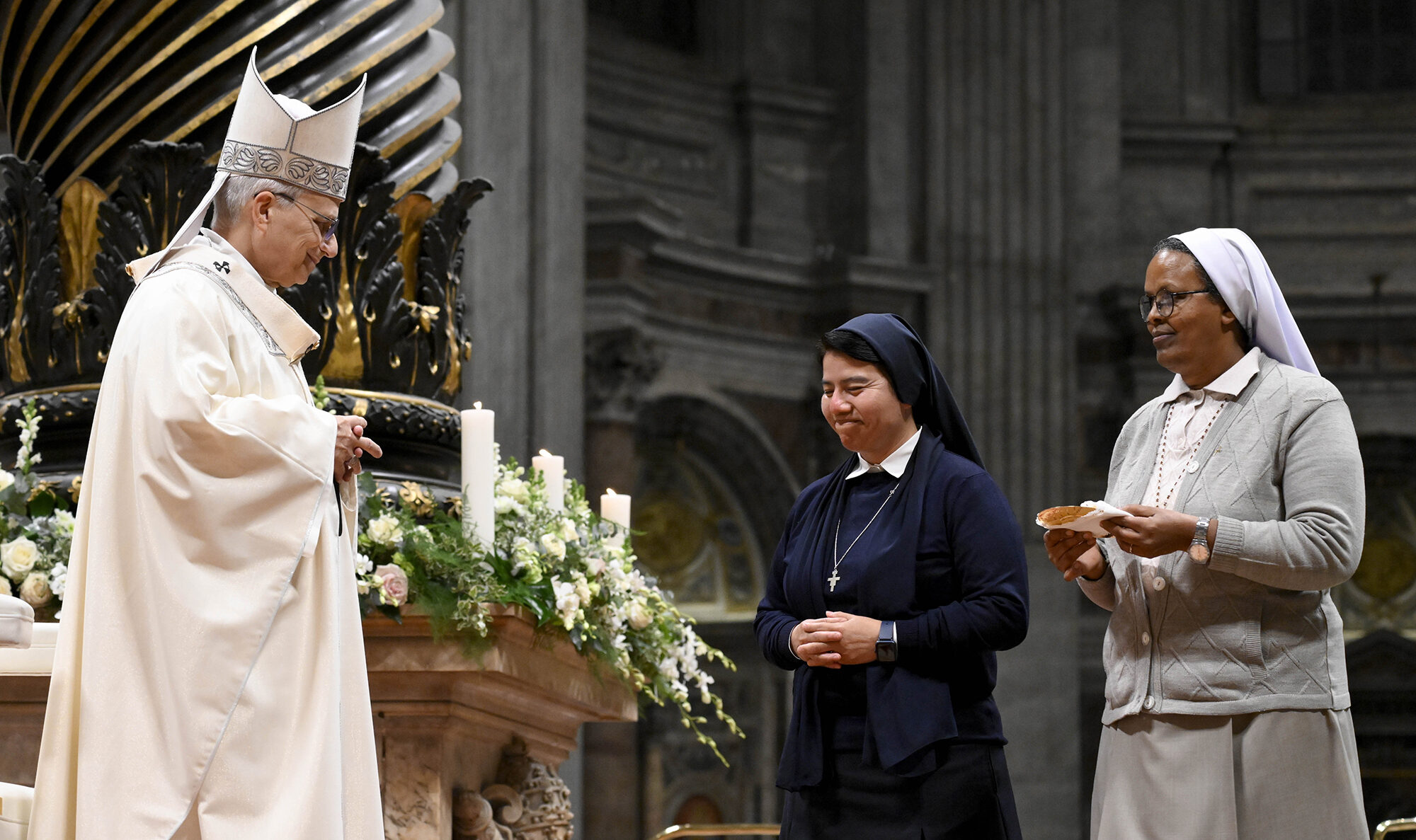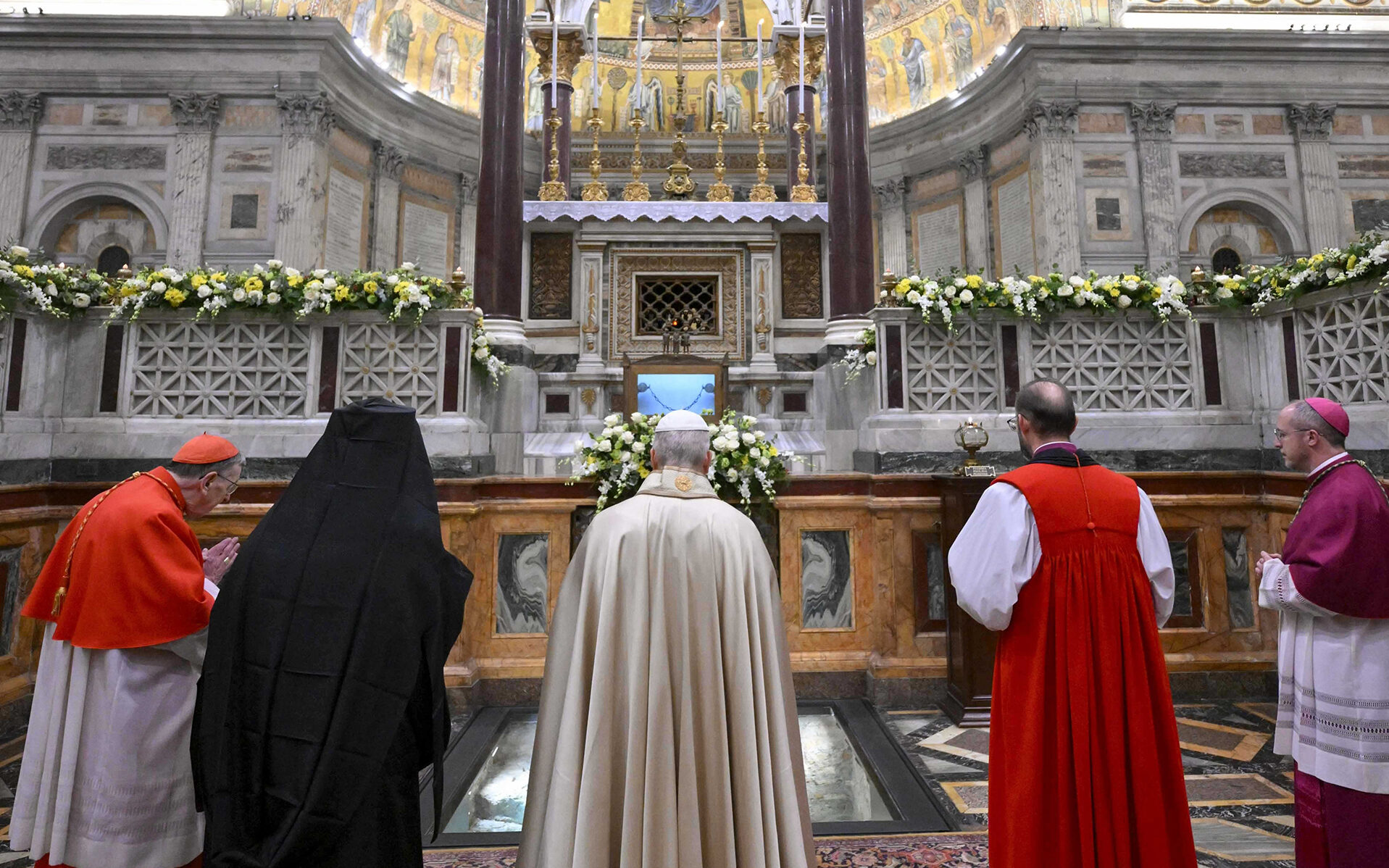BEFORE THE CROSS | Let Jesus guide us through transition
Since God made us for communion, we have to wonder: Is there a better way to handle the stress of transitions, one that doesn’t pull us apart?
It’s a time of transition. May is turning to June. Spring is turning to summer. Students are graduating from grade school, high school and college. Priest assignments are changing. And, at the end of June, I will offer my letter of retirement to the Holy Father. (This is required by Canon Law on a bishop’s 75th birthday. When the pope accepts it is up to him.)
The readings for the week are full of transitions, too. St. Paul goes from Troas to Philippi to Athens to Corinth to Antioch. Mary visits Elizabeth as both of them experience the transition to pregnancy and motherhood.
Even the liturgical season speaks of transition, as we move from Jesus’ resurrection to His ascension to Pentecost. Jesus highlights the theme of transition when He says: “I came from the Father and have come into the world. Now I am leaving the world and going back to the Father.”
Transition typically produces stress, and stress often leads to people pulling apart from each other. Since God made us for communion, we have to wonder: Is there a better way to handle the stress of transitions, one that doesn’t pull us apart?
Throughout his treatise on the Trinity, St. Augustine distinguishes between the truth of a thing (such as a rock) and the truth of a process (such as learning). This distinction can help us handle our transitions more gracefully. Things change: A class graduates, a teacher retires, a school closes, parishes merge. But if we’re attentive to the process then we can find peace, even as things change.
Psychological counselors know that grief involves a process. The better they know this process, the more skillfully they can help someone who is grieving. Teachers know that learning involves a process. The better they know this process, the more skillfully they can help students who are stuck. The Criminal Justice Ministry helps people who are being released from prison. The better they know the process of readjusting to life on the outside, the more skillfully they can help people make a successful transition.
Some schools are skillful at making transitions. They have deliberate rituals that help students as they enter preschool or middle school, or as they graduate from grade school or high school. By being attentive to the process, they help people pull together as they say hello and say goodbye.
It helps if we reflect seriously on what Jesus means when He says that He is “the way, and the truth and the life,” and when He says He is “the way to the Father.” He’s not only telling us where we’re going. By calling Himself “the way” He’s telling us something about the process of getting there.
It also helps if we reflect deeply on what Jesus means when He says that the Holy Spirit “will guide us into all truth.” By saying the Holy Spirit will guide us, He means there will be a process of learning. We see that process when the Apostles gather to listen to each other and debate about the question of circumcision for the Gentiles. The Holy Spirit doesn’t only ensure the result, He guides the process.
The life of faith involves making many transitions. The more deeply we let Jesus to be our way, the more deeply we let the Holy Spirit guide us, the more graceful our transitions can be. And the more graceful we become, the more we will find ourselves pulling together in the midst of change, rather than pulling apart.




